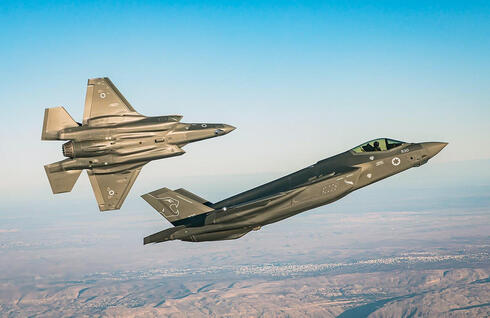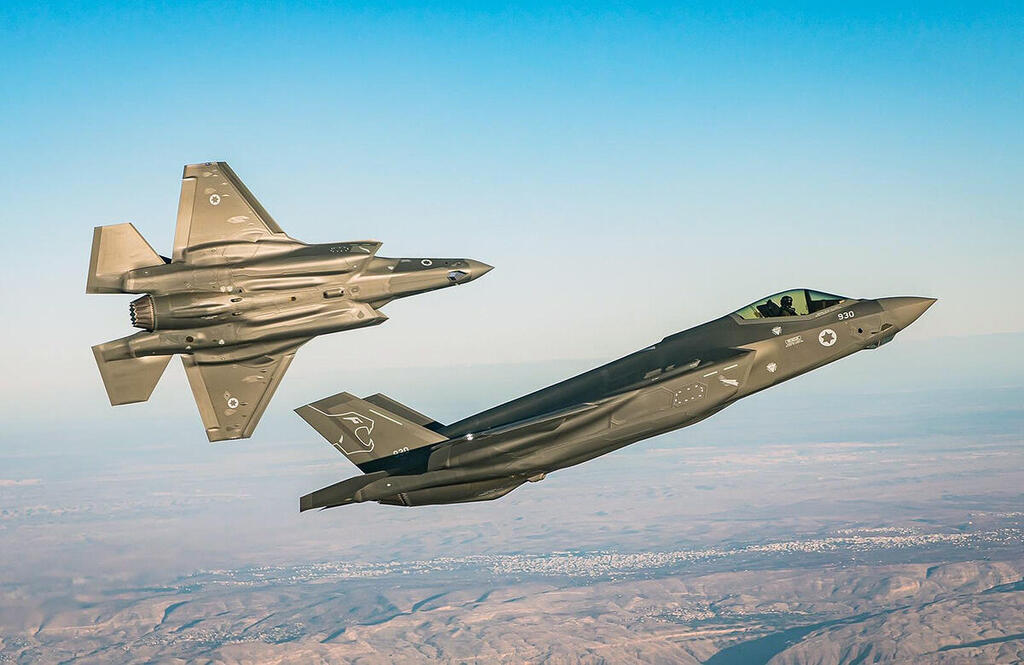
Israeli reliance on US arms under the microscope as Rafah attack looms
Israeli reliance on US arms under the microscope as Rafah attack looms
A report by the Israeli Chief Accountant reveals the dramatic dependence of the country on the United States in the current war.
The dramatic dependence on American aid for the Gaza war was revealed in the annual report on the implementation of the budget published by the Accountant General's Department of the Treasury. The report shows that in the fourth quarter of 2023 the Ministry of Defense had unplanned transactions created due to the war amounting to NIS 18 billion ($4.8B). Of these, approximately NIS 7.8 billion (43%) were contracts with American suppliers: NIS 6.9 billion from the US military and an additional NIS 932 million from American companies. The remaining NIS 10.2 billion were contracts with Israeli companies.
The amounts also include deals that will only be provided in the future, so the meaning is that Israel's dependence on the Americans is expected to continue in the coming years as well. Also, the data prove once again how dependent Israel is specifically on the U.S. and therefore American threats to stop the sale of arms to Israel in the event of an uncoordinated entry into Rafah can not be taken lightly.
For its part, the Ministry of Finance attached a price tag of NIS 17 billion to the direct security costs of the war in the state budget for 2023. These costs were mainly made up of non-contractual expenses, such as reserve days and military logistics. But the Accountant General’s report clarifies how partial this number is and does not reflect reality, when the real cost is billions higher. In contrast to budget reports, the Accountant General's report presents a breakdown of open engagements - that is, the state's active procurement agreements with various suppliers.
The report shows that the Ministry of Defense has open contracts to the extent of a whopping NIS 194 billion - this amount includes huge deals that were signed years ago, such as the purchase of the F-35 aircraft from the U.S. or the purchase of submarines from the Thyssenkrupp Corporation, which are not related to the Gaza war. Of the NIS 194 billion, NIS 67 billion are classified transactions. The report provides a breakdown of the engagements related to the Gaza war, amounting to NIS 18 billion out of the NIS 194 billion.
A significant part of these engagements has not yet been carried out, meaning that the agreements with the suppliers have been signed but the transaction has not been completed and not all the money has been transferred. So these are amounts that the army agreed upon in 2023 but will pay for in other budget years, whether it is the 2024 budget that has already been approved or in future state budgets.
According to the report, about NIS 10.35 billion are related to the purchase of different types of ammunition and armaments. These engagements include the local procurement of ammunition to the extent of NIS 3.06 billion.
In regards to aerial munitions, the report separates "weapons" from "warheads", which are usually bought separately, with the warheads containing the explosive material, while the armaments refer to the guidance systems on which the warhead is mounted. The Ministry of Defense purchased armaments to the extent of NIS 911 million from local suppliers Rafael, IAI, and Reshef Technologies and an additional NIS 2.07 billion from the U.S. military and an unnamed American company. Warheads to the extent of NIS 1 billion were also purchased from IAI and NIS 289 million from the U.S. Air Force.
The fact that most of the engagements that the Ministry of Defense carried out at the outbreak of the war were in the worlds of ammunition, confirms previous reports that the IDF was forced to manage an "arms economy" and limit the air and ground attacks in order to maintain a stock of ammunition both for the continuation of the fighting in Gaza and for a scenario in which a full-scale war breaks out on the northern front. The increased use of ammunition in the wars in Gaza and Ukraine has led the world to an unusual global shortage of ammunition of all types, which makes it difficult for the IDF and the Ministry of Defense to obtain additional stock immediately and raises prices.














